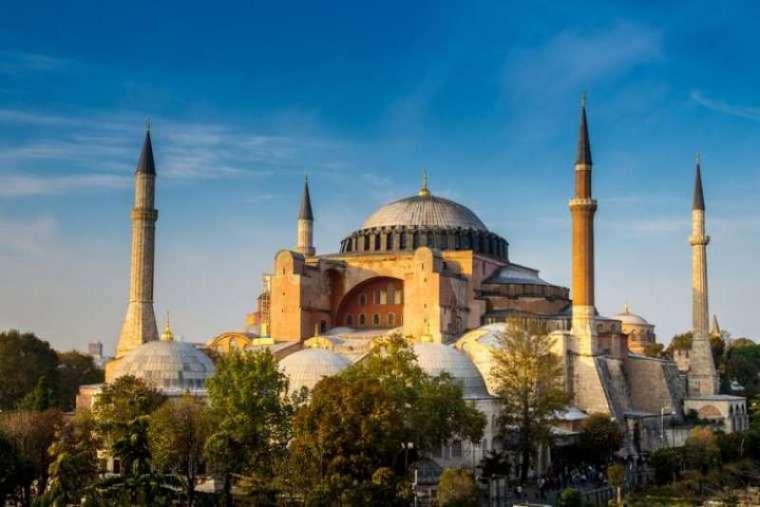Indonesian Muslim party warns Erdogan could spark global ‘clash of civilizations’

An Islamic political party in Indonesia said Tuesday that Turkey's President Recep Tayyip Erdogan could spark a civilizational clash because of his calls for an Islamic “reawakening” amid the establishment of the Hagia Sophia as a mosque.
A recent tweet from Erdogan “summoned Muslims ‘in every corner of the earth’ to follow Turkey’s lead in reawakening the Islamic nation, or ummah, which was largely united under the political and military leadership of a caliph from the 7th century CE until the dissolution of the Ottoman Caliphate in 1924,” Indonesia’s National Awakening Party said in a July 21 statement.
Recent statements from the Turkish president “are attacking the rules-based international order; inflaming emotions ‘wherever Muslims dwell throughout the earth;’ and threaten to
rekindle a clash of civilizations that afflicted humanity for nearly 1300 years, along a fault line stretching ‘from Bukhara (in Central Asia) to al-Andalus (Spain),’” the statement added.
While “President Erdogan has defended the conversion of Hagia Sofia into a mosque by citing Turkey’s right, as a sovereign nation state, to do as it pleases with the former Orthodox Christian cathedral,” the effects of the president’s call for an Islamic reawakening “extend far beyond Turkey’s borders and threaten both Muslim- majority and non-Muslim nations worldwide,” the National Awakening Party said.
Hagia Sophia, the church of “Holy Wisdom,” was built in the year 537 and served as the cathedral of the Patriarch of Constantinople. It stood as the largest known building in the world and the largest Christian church, for a period of time.
In the year 1453, Turkish armies sacked Constantinople and the church was turned into a mosque. In 1934, the cabinet of then-Turkish leader Mustafa Kemal Ataturk—head of a secularist government—converted the mosque into a museum and opened it to visitors from around the world.
On July 2, a Turkish court ruled that the 1934 conversion of Hagia Sophia from a mosque to a museum was unlawful. The decision was announced July 10, and Erdogan subsequently announced that Hagia Sophia would be converted back into a mosque.
Erdogan made his announcement in a lengthy July speech that was littered with historical, geographical, and religious references to the old Islamic world, connecting Hagia Sophia’s reconversion to a much-broader “Islamic renaissance.”
In his speech, the Turkish leader predicted that Hagia Sophia’s reconversion would herald the liberation of al-Aqsa mosque on the Temple Mount in the old city of Jerusalem, the third-holiest site in Islam.
Dr. Elizabeth Prodromou, a former vice chair on the U.S. Commission on International Religious Freedom, told CNA July 17 that the president’s speech aimed to “justify what he [Erdogan] sees as a kind of religious destiny, and also a geopolitical model for Turkey’s revisionism and expansionism.”
Erdogan specifically chose these “historical figures” to promote the depth of Turkey’s history and to “encompass Turkic tribes from Central Asia into the Ottoman Empire,” she said.
It was a speech “heralding the liberation of the full Muslim world,” Prodromou said.
Christian and political leaders around the world condemned the decision to reconvert Hagia Sophia. Orthodox and Catholic leaders have declared July 24 a day of mourning for the decision. - CNA
Radio Veritas Asia (RVA), a media platform of the Catholic Church, aims to share Christ. RVA started in 1969 as a continental Catholic radio station to serve Asian countries in their respective local language, thus earning the tag “the Voice of Asian Christianity.” Responding to the emerging context, RVA embraced media platforms to connect with the global Asian audience via its 21 language websites and various social media platforms.














